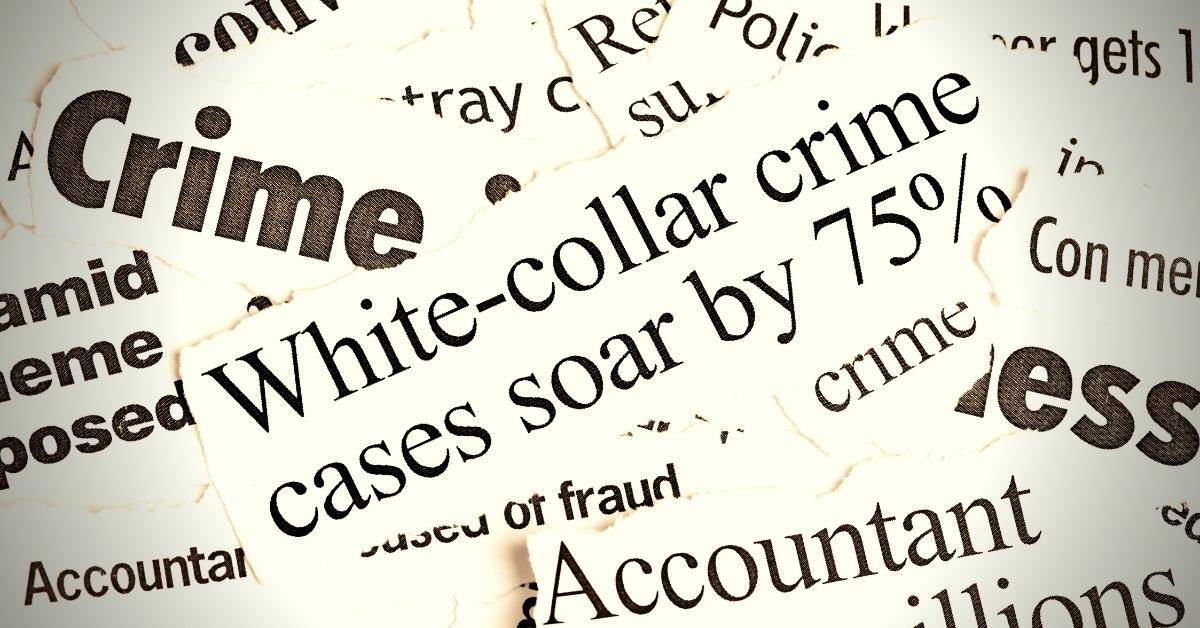White collar crime was famously defined by sociologist and criminologist Edwin Sutherland in 1939 as “a crime committed by a person of respectability and high social status in the course of their occupation.” White collar crimes frequently become federal matters when the illegal activity involved crosses state lines.
Federal charges are always more perilous than state charges because there are usually much stricter penalties imposed. The federal agency handling a criminal case also has much greater resources at its disposal with which to conduct investigations and work towards convictions.

Federal White Collar Crime Defense Lawyer in Denton, Frisco, Lewisville, Flower Mound, TX
If you or your loved one think that you might be under investigation or you were already arrested for an alleged federal white-collar crime in the Denton area, talk to a lawyer before you talk to the police. Contact the Law Offices of Richard C. McConathy right away.
Our firm will make every effort to help you achieve the outcome that results in the fewest possible consequences. Call (940) 222-8004 or contact us online to take advantage of a free consultation.
Federal White Collar Charges in Denton County
Common types of federal white-collar crimes people could be charged within Denton County include, but are not limited to:
- Bank Fraud, 18 U.S. Code § 1344 — An individual commits bank fraud if they knowingly execute or attempt to execute a scheme or artifice to defraud a financial institution or to obtain any of the money, funds, credits, assets, securities, or other property owned by, or under the custody or control of, a financial institution, by means of false or fraudulent pretenses, representations, or promises.
- Racketeer Influenced and Corrupt Organizations Act (RICO Act), 18 U.S.C. §§ 1961–1968 — It is illegal under 18 U.S. Code § 1962 for any person who has received any income derived, directly or indirectly, from a pattern of racketeering activity or through a collection of an unlawful debt in which such person has participated as a principal to use or invest, directly or indirectly, any part of such income, or the proceeds of such income, in the acquisition of any interest in, or the establishment or operation of, any enterprise which is engaged in, or the activities of which affect, interstate or foreign commerce. It is not unlawful under this subsection for the purchase of securities on the open market for purposes of investment, and without the intention of controlling or participating in the control of the issuer, or of assisting another to do so, if the securities of the issuer held by the purchaser, the members of his immediate family, and his or their accomplices in any pattern of racketeering activity or the collection of an unlawful debt after such purchase do not amount in the aggregate to one percent of the outstanding securities of any one class, and do not confer, either in law or in fact, the power to elect one or more directors of the issuer. Any person is prohibited through a pattern of racketeering activity or through the collection of an unlawful debt from acquiring or maintaining, directly or indirectly, any interest in or control of any enterprise which is engaged in, or the activities of which affect, interstate or foreign commerce. A person is also prohibited from being employed by or associated with any enterprise engaged in, or the activities of which affect, interstate or foreign commerce, to conduct or participate, directly or indirectly, in the conduct of such enterprise’s affairs through a pattern of racketeering activity or collection of unlawful debt. It is also illegal to conspire to violate any of the provisions of this section.
- Laundering of Monetary Instruments (Money Laundering), 18 U.S. Code § 1956 — Money laundering involves a person, knowing that the property involved in a financial transaction represents the proceeds of some form of unlawful activity, conduct or attempt to conduct such a financial transaction which in fact involves the proceeds of specified unlawful activity with the intent to promote the carrying on of specified unlawful activity or with intent to engage in conduct constituting a violation of section 7201 or 7206 of the Internal Revenue Code of 1986, or knowing that the transaction is designed in whole or in part to conceal or disguise the nature, the location, the source, the ownership, or the control of the proceeds of specified unlawful activity or to avoid a transaction reporting requirement under State or Federal law. Money laundering also involves a person transporting, transmitting, or transferring, or attempting to transport, transmit, or transfer a monetary instrument or funds from a place in the United States to or through a place outside the United States or to a place in the United States from or through a place outside the United States with the intent to promote the carrying on of specified unlawful activity or knowing that the monetary instrument or funds involved in the transportation, transmission, or transfer represent the proceeds of some form of unlawful activity and knowing that such transportation, transmission, or transfer is designed in whole or in part to conceal or disguise the nature, the location, the source, the ownership, or the control of the proceeds of specified unlawful activity or to avoid a transaction reporting requirement under State or Federal law. The law also criminalizes a person, with the intent to promote the carrying on of specified unlawful activity, to conceal or disguise the nature, location, source, ownership, or control of property believed to be the proceeds of specified unlawful activity, or to avoid a transaction reporting requirement under State or Federal law, conducting or attempting to conduct a financial transaction involving property represented to be the proceeds of specified unlawful activity, or property used to conduct or facilitate specified unlawful activity.
- Embezzlement, 18 U.S. Code § 1341 — The officer, director, agent or employee of, or connected in any capacity with any Federal Reserve bank, member bank, depository institution holding company, national bank, insured bank, branch or agency of a foreign bank, or organization operating under section 25 or section 25(a) [1] of the Federal Reserve Act, or a receiver of a national bank, insured bank, branch, agency, or organization or any agent or employee of the receiver, or a Federal Reserve Agent, or an agent or employee of a Federal Reserve Agent or of the Board of Governors of the Federal Reserve System, commits embezzlement if they embezzle, abstract, purloin or willfully misapply any of the moneys, funds or credits of such bank, branch, agency, or organization or holding company or any moneys, funds, assets or securities intrusted to the custody or care of such bank, branch, agency, or organization, or holding company or to the custody or care of any such agent, officer, director, employee or receiver.
- Mail Fraud, 18 U.S. Code § 1341 — Mail fraud involves a person devising or intending to devise any scheme or artifice to defraud, or for obtaining money or property by means of false or fraudulent pretenses, representations, or promises, or to sell, dispose of, loan, exchange, alter, give away, distribute, supply, or furnish or procure for unlawful use any counterfeit or spurious coin, obligation, security, or other article, or anything represented to be or intimated or held out to be such counterfeit or spurious article, for the purpose of executing such scheme or artifice or attempting so to do, place in any post office or authorized depository for mail matter, any matter or thing whatever to be sent or delivered by the Postal Service, or deposit or cause to be deposited any matter or thing whatever to be sent or delivered by any private or commercial interstate carrier, or take or receive therefrom, any such matter or thing, or knowingly causes to be delivered by mail or such carrier according to the direction thereon, or at the place at which it is directed to be delivered by the person to whom it is addressed, any such matter or thing.
Federal White Collar Crime Penalties in Texas
Possible consequences of federal white-collar crimes depend on the specific charges you are facing. The crimes listed above are generally punishable as follows:
- Bank Fraud — Fine of up to $1 million and/or up to 30 years in prison.
- RICO Act — Fine of $250,000 or twice the proceeds of the offense and/or up to 20 years in prison (possibly life if any of the predicate acts charged permit such a punishment).
- Money Laundering — Fine of up to $500,000 or twice the value of the property involved in the transaction, whichever is greater, and/or up to 20 years in prison.
- Embezzlement — Fine of up to $1 million and/or up to 30 years in prison, although offenses involving less than $1,000 being embezzled are punishable by only one year in prison and/or a fine.
- Mail Fraud — Fine of up to $250,000 for individuals or $500,000 for organizations and/or up to 20 years in prison. If the violation occurs in relation to, or involving any benefit authorized, transported, transmitted, transferred, disbursed, or paid in connection with, a presidentially declared major disaster or emergency, or affects a financial institution, the offense is punishable by a fine of up to $1 million and/or up to 30 years in prison.
Federal White Collar Crime Defenses in Denton
Many white collar crimes are complex cases that involve multiple parties. A person could be charged with partaking in activity that they did not realize was illegal.
If you are cooperative with a federal agency in the prosecution of actual wrongdoers, your criminal charges could actually be dismissed and your penalties can be dramatically lessened. You will want to make sure you have an attorney when negotiating any possible assistance that you might provide.
Denton Federal White Collar Crime Resources
Federal White Collar Crime — Learn more about substantive and procedural areas of importance in white-collar criminal practice in this law school casebook. United States sentencing guidelines, mens rea, and entity liability are covered in the casebook. It also discusses false claims, perjury, and false statements.
White-Collar Crime | FBI.gov — Find more information about white collar crimes on this section of the FBI website. Asset forfeiture, corporate fraud, and health care fraud are included in major threats and programs. Also find information includes identity theft, money laundering, and intellectual property theft.
Find A Denton County Defense Attorney for Federal White Collar Crime Charges | Law Offices of Richard C. McConathy
Were you or your loved one arrested or do you believe that you could be under investigation for a federal white-collar crime in Denton or a surrounding location in Denton County? Do not wait to contact the Law Offices of Richard C. McConathy.
Our firm can fight to possibly get your criminal charges reduced or dismissed. We can explore all of your legal options with you when you call (940) 222-8004 or contact us online to set up a free consultation.


